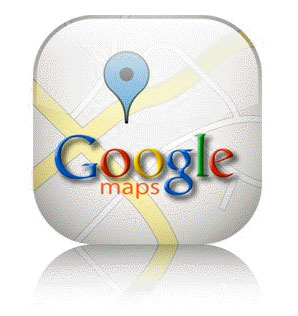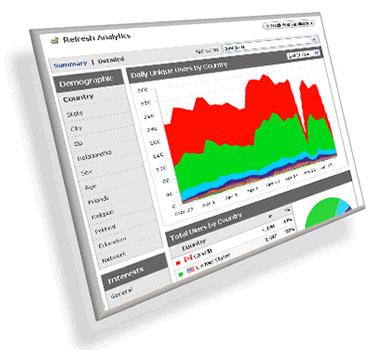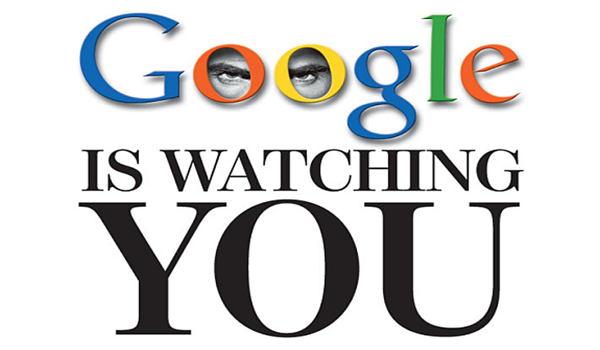By now, everyone in the tech world and beyond has heard about Google’s data collection from unsecured Wi-Fi networks in Germany.
What you may not have known, however, is that Google has been collecting detailed user data since day one. Why? Essentially, as market research, which is then used to enhance their services. While the improvements that come as a result of Google’s data collection may benefit us all, it does come at a cost.
Do you really want Google to have databases full of information regarding your online habits? Though Google does anonymize the data that they receive, it doesn’t happen immediately, leaving it vulnerable to interception for at least a small period of time. Is it worth the risk? Google sure seems to think so.
So where, exactly, is Google’s data collected from? Here’s a rundown of 10 of Google’s most valuable sources of data.
1. Google Search
 You’d better believe that Google is tracking your search terms and storing them in a database.
You’d better believe that Google is tracking your search terms and storing them in a database.
Google then uses this information to create predicted searches, display popular search terms on Google Trends, and provide advertisers with statistics regarding specific searches. Of course, your searches are analyzed and organized by software, but there is always the possibility of the information falling into the wrong hands.
Regardless of the potential outcome, Google is using this data for financial gain, a practice which is often looked down upon by users.
2. Gmail
 Every message that is sent and received using Gmail is mined for data and information and relayed back to Google.
Every message that is sent and received using Gmail is mined for data and information and relayed back to Google.
After parsing the information they receive, Google uses it to display targeted advertisements and make changes to the service based on how people are using it. Again, your emails aren’t seen by human eyes, but rather scraped for statistical information.
Still, Google’s databases (however secure they may be) are not completely immune to penetration. The risk of your private information going public is still there.
3. Google Buzz & Wave
 Breaking into the social networking scene with Buzz and Wave, Google is receiving data regarding how people are using their new services. Buzz has been riddled with privacy concerns from the start.
Breaking into the social networking scene with Buzz and Wave, Google is receiving data regarding how people are using their new services. Buzz has been riddled with privacy concerns from the start.
Upon launching the service, Google used data that was collected from Gmail accounts to connect you with your Gmail contact list. To many users concern, this info was then displayed publicly for anyone using Buzz to see.
Though Google quickly changed this, both Buzz and Wave still collect various information regarding your usage of the services, linking it with information from Gmail and Google Talk.
4. Google Apps
 From Google Docs to Calendar, Google is parsing and collecting information created and shared using their office applications.
From Google Docs to Calendar, Google is parsing and collecting information created and shared using their office applications.
While these apps are supposed to collect information on how you are using them, there have been cases in which this information was unintentionally shared.
Docs, for example, had an issue that shared various documents with previous contacts that were not intended to see them.
If you’re doing any financial spreadsheets or documenting any sensitive information using Google Apps, I’d recommend that you stop immediately.
5. Google Maps & Earth
 Outside of the controversial methods Google used to collect data over unsecured wireless networks, Google has always collected data from their Maps and Earth services.
Outside of the controversial methods Google used to collect data over unsecured wireless networks, Google has always collected data from their Maps and Earth services.
For starters, pictures taken using Google’s satellite display a bird’s-eye view of your home for anyone to see, forcing visual data to be collected from people that don’t even use the internet.
Furthermore, Google Street View offers ground level pictures of various neighborhoods, taken by Google staff (you know, when they were tapping data from Wi-Fi networks) and puts it on public display.
Maps also collects data on the locations users are requesting directions to and from. Forced data collection of private property that is put on public display doesn’t sit well with many people.
6. Google Talk
 Instant messages that are sent and received using Google’s messaging service Talk are also subject to data mining. By default, Google records information about when and how often you use it, the people on your contact list, and the files you transfer using it.
Instant messages that are sent and received using Google’s messaging service Talk are also subject to data mining. By default, Google records information about when and how often you use it, the people on your contact list, and the files you transfer using it.
Additionally, Google collects data on how you interact with the software, such as when and where you click on the interface.
7. Third-Party Websites
 Websites using Google Analytics collect a large amount of information about you during your visit.
Websites using Google Analytics collect a large amount of information about you during your visit.
The information collected ranges from the city you’re located in to how you came to arrive at the website.
While an overwhelming amount of websites use Google Analytics, one of the most popular sites using it is Twitter.
As stated in Twitter’s Privacy Policy, they use Analytics to collect information including cookies and the IP address you are accessing the website from.
8. Google Chrome
 Chrome, by default, collects information during the installation of the browser. This is used to measure the success rate of Chrome installations.
Chrome, by default, collects information during the installation of the browser. This is used to measure the success rate of Chrome installations.
The browser is also capable of collecting information regarding how the browser was downloaded, when it was installed, and what searches are made using it.
Aside from giving Google better access to the terms you are searching for, Chrome also collects information pertaining to how you interact with the browser.
9. YouTube
Now owned by Google, YouTube provides them with all of the information that they need to know about user’s video viewing habits.
This tells them which videos you’re watching, how long you’re watching them, and forms data based on widespread user patterns. More importantly, Google collects info regarding which users you communicate with, your favorite videos, and channels you subscribe to.
Do you really want to be linked to an obscene video that you stumbled upon by accident?
10. Google Reader & Feedburner
 Feedburner, like YouTube, was purchased by Google. Now in addition to the data they collect on the videos you watch, they can also establish a profile on you according to the online material you read.
Feedburner, like YouTube, was purchased by Google. Now in addition to the data they collect on the videos you watch, they can also establish a profile on you according to the online material you read.
Feedburner provides webmasters with additional information on their subscribers, data that is typically used to increase readership, and relays the info back to Google. No doubt, something that most feed subscribers are unaware of when adding a Feedburner feed.
Reader, Google’s feed reading application, also relays information about the feeds you subscribe to back to Google. Should Google really have access to information regarding everything you read?
With Google now serving as the search engine used for over 86 percent of searches made on the internet, there is no doubt that they have access to a tremendous amount of information.
Is Google’s data collection a matter of concern, or a necessary process for improvement? I’ll leave that for you to decide.




GIPHY App Key not set. Please check settings
30 Comments